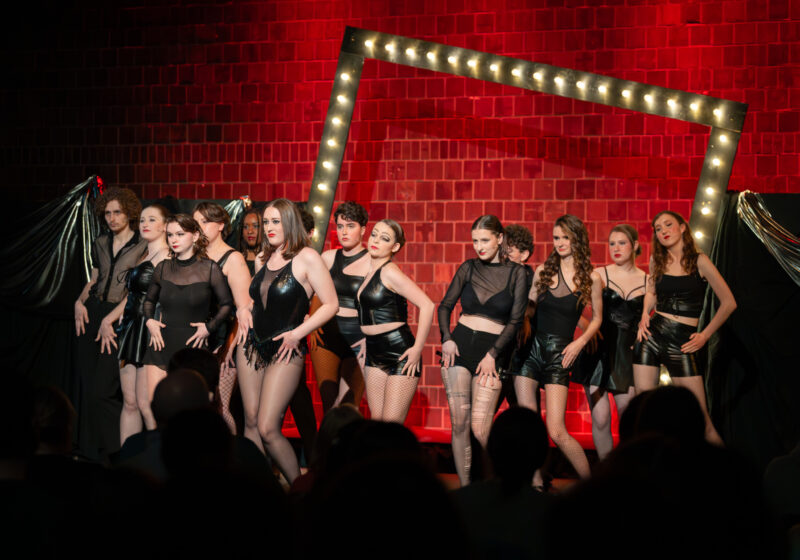Author Lauren Holmes visited UR last Thursday to discuss her work “Barbara the Slut and Other People,” a short story collection she says focuses on the themes of “adolescence, sexuality, and loneliness and the search for connection.”
The work as a whole is entertaining in more ways than one. The 10 short stories are unique in plot and theme, the characters relatable to the point of being painful. But for the active and socially-aware reader, it additionally keeps one’s attention as you wonder: Is this okay?
As noted in the title, “Barbara the Slut and Other People” is a commentary on the use of words that dance on the line between insults and slurs. In an email interview with the Campus Times, Holmes said “the title is definitely supposed to be provocative and attract readers.”
The title’s intention is apt for the work as a whole, which confronts issues such as sexism, race, body type, and homophobia.
Characters in each story dealt with these issues through conflict, and the stories additionally ask each reader to decide how they feel about each issue.
In “Weekend with Beth, Kelly, Muscle and Pammy,” I had to ask myself: How do I, as a woman, feel about Beth using the word “pussy?”
I found out I did not like it.
In “Mike Anonymous,” I wondered about a heavy-set character saying, “Fat people get cold too,” as a joke to her friend.
I found out that was okay for me.
Holmes makes a point to include true flaws her in characters, whereas privilege would realistically prevail. White characters have expectations about non-white characters that stem from stereotypes. Male characters say things like, “And by thank you, I mean she let me have sex with her then and several other times… And that is called karma.”
Of course, Holmes herself is an American white woman author, whose sexuality I do not know, and I went into the novel considering that.
To other readers who haven’t heard Holmes speak, or maybe who didn’t go into the book so analytically, you might miss the intention of the characters’ flaws. Holmes herself insists that young people who look for these faults in their own personality will overcome negativities in society.
“You’re our future, and I believe in and am heartened by you,” Holmes said. “It’s time to really take stock of who we are, as a country and as individuals. Do some soul-searching—what are your prejudices, what are your privileges?”
She added, about the presidential election of Donald Trump: “We need to support and fight for the people who are most affected by this outcome. And if that’s you, we will support and fight for you. Women, take care of yourselves and of each other. Fight for each other. White women, fight alongside and for women of color.”
In the titular story, the word “slut” is brought up almost 20 times, from characters both male and female. In particular, the male narrator mentions the excessive number of times Beth calls him a “pussy.”
Holmes said that the use of these two words in her literature are meant to represent themes like loneliness that come to affect her characters.
Since “Barbara the Slut and Other People” was published in August 2015, words like “pussy” have become increasingly loaded, in part due to the role of women’s rights in the recent election. As a woman reader, I found it emotionally difficult to read about Barbara’s trials as a sexually-active high school girl.
“I think those words are even more dangerous now that we’ve elected a president who’s been accused of sexual harassment and assault, and who views and talks about women in such horrible ways,” Holmes said. “Let’s pray more people are disgusted by his behavior than emboldened by it.”
At times, it seems confusing what era Holmes is trying to portray. In “Barbara the Slut,” the main characters use both Photoshop and cassette tapes. Perhaps the intention here was to portray the everlasting manner of sexism and hatred, but as a reader, it left me confused as to whether that was the point or not.
Fans of “Barbara the Slut and Other People” will be happy to know Holmes is currently planning a novel, a memoir of her dog, and television projects.
“A goal I’ve always had and am more committed to than ever is to write underrepresented characters as fully human, especially for TV,” Holmes said. “I believe in the power of storytelling, of literature, film, and TV, to broaden worldviews and promote understanding and empathy.”




